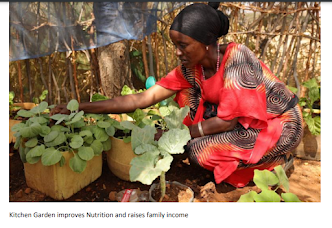Breaking the Stigma and Finding Support
Mental health is an essential part of overall well-being, yet it remains one of the most neglected aspects of healthcare—especially for women. From hormonal changes and reproductive health to societal expectations and caregiving roles, women face unique mental health challenges that are often misunderstood, dismissed, or silenced.
Breaking the stigma surrounding women’s mental health is not just about awareness—it's about recognizing the struggles, creating safe spaces for healing, and ensuring support systems are accessible to all.
Why Women’s Mental Health Matters
Women are nearly twice as likely as men to be diagnosed with anxiety disorders and depression. But beyond statistics, their experiences are often shaped by layered realities:
🔹 Biological and Hormonal Factors
Fluctuations due to menstruation, pregnancy, postpartum changes, and menopause can significantly impact a woman’s mental health. Conditions like postpartum depression (PPD) or premenstrual dysphoric disorder (PMDD) are real and often underdiagnosed.
🔹 Societal Pressures and Gender Roles
The pressure to “do it all”—be a perfect mother, a supportive wife, a career woman, a caregiver—can lead to chronic stress, burnout, and a loss of self-worth. In some cultures, expressing emotional vulnerability is seen as weakness, pushing women to suffer in silence.
🔹 Trauma and Abuse
A disproportionate number of women experience gender-based violence, harassment, or trauma, all of which can leave deep psychological scars. Left untreated, these experiences can lead to long-term issues like PTSD, anxiety, and depression.
🔹 Economic Inequality and Financial Stress
Lack of financial independence or control over economic decisions can severely impact mental health. The burden of unpaid care work also adds to emotional strain, especially when it goes unacknowledged.
Barriers to Mental Health Support
Despite growing conversations around mental health, many women still face major obstacles when seeking help:
- Cultural stigma around therapy or medication
- Lack of access to affordable and gender-sensitive mental health care
- Time constraints, especially for women juggling multiple responsibilities
- Fear of judgment from family or community
Too often, women are told to “be strong” or to “pray it away,” which discourages them from seeking the professional help they need and deserve.
Creating Accessible, Inclusive Support Systems
Improving women’s mental health starts with building systems that listen, respect, and respond to their realities:
✅ Community-Led Support
Community groups, peer-to-peer networks, and local women’s circles provide non-judgmental spaces for sharing, healing, and emotional connection.
✅ Mental Health Education
Normalizing conversations around mental health through school programs, religious centers, and public campaigns can chip away at stigma and encourage early intervention.
✅ Workplace Mental Wellness
Employers can play a huge role by offering flexible schedules, mental health days, and access to counseling services—recognizing that productivity begins with mental well-being.
✅ Teletherapy and Digital Resources
For women with limited mobility, responsibilities, or access, digital platforms are bridging the gap and making therapy more available than ever.
How The SOL Foundation Supports Women’s Mental Well-being
At The SOL Foundation, we recognize that true empowerment is impossible without mental wellness. Through our #SOLEmpowernment initiative, we integrate mental health awareness into all our work—acknowledging that many women cannot rise if their emotional burdens remain unaddressed.
Here’s how we support women’s mental health:
💛 Safe and Confidential Spaces – Whether having workshops or support circles, through our global partners, we ensure women have trusted avenues to talk and heal.
💛 Awareness and Advocacy – We create educational content and hold community sessions that help break the silence around mental health and challenge the shame attached to it.
💛 Skill-Building for Resilience – From stress management training to creative expression and wellness activities, our programs are designed to build inner strength and foster hope. These trainings are available through our collaboration with global partners.
Moving Forward, Together
Mental health is not a luxury. It’s a human right. For women to lead, raise families, innovate, and contribute fully to their communities, their emotional and psychological health must be prioritized.
Let’s create a world where:
✔ Mental health is spoken about openly
✔ Seeking help is a sign of strength
✔ No woman suffers in silence
✔ Support systems are compassionate and accessible
If we uplift her mind, we empower her life.
......................................................................................................................................
Website: https://www.the-sol-foundation.org/
Instagram: https://www.instagram.com/thesol_foundation/
Facebook: https://www.facebook.com/thesolfoundationorg/
TikTok: https://www.tiktok.com/@thesolfoundation
Blog: https://the-sol-foundation.blogspot.com/
Email: coordinator@the-sol-foundation.org
Let us take a look at some of the feedback received from our Instagram family talking about the impact of education in our lives:
@shahmeer_waleed
"Yes women face lots of stress"
@bollywood_translation
"Judged and criticized by so called family members and strangers"
@theadventglobal
"Usually emotional and financial stress"
@karuvadgraphy
"1. Dwelling with delusional challenges"
@lavingdelegend
"What the society will think that people will think like for real they are not feeding you nor paying bills."
@zainab_akadir
"postpartum depression"
@_real_rizwana
"Body changes & instead of teaching that's normal, many parents judge a girl for that."
@aisha_bagha
"Eating disorders"

.jpeg)
%20(1).jpg)



.png)
